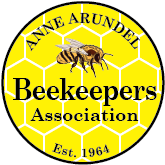August 17th, 2021 AABA Meeting
Our next meeting is Tuesday August 17th
6:30 Q and A with President Ryan Smith. Open discussion, bring your questions and observations
7:00 Clyde Strang, EAS Masterbeekeeper: Wax Moth
7:30 Bill Hingst “Making Mead the Supercharged Way”
https://aabees.org/wp-content/uploads/2021/08/Mead-Supercharged.pdf
Making Mead the Supercharged Way
It is said that to make mead all you need is honey, water, yeast, and time.
That’s true, but there’s a better way. There are basic rules of “country” winemaking which served me well for many years.I handled honey like I would any other fruit that came my way. It wasn’t the traditional method for making, but it turned out to be an award-winning process.
My first batch of mead took five years to turn from undrinkable to ambrosia.That’s a typical timeframe for meads.Some competitions require meads be at least five years old to be eligible to even enter, although most only require meads to be one or two years old.
That first batch won blue ribbons from the Delaware Beekeepers Association, Maryland Beekeepers Association, and the Eastern Apicultural Society. I refined the process over the years, producing winners in just two or three years. Then I was called to assist a local university yeast professor who wanted to produce a commercially saleable mead in 90 days using wild yeasts collected from the bodies of honey bees. It was a failure, but I adopted his method of “pushing the yeast” for quicker fermentation.
On the eve of the first mead competition of the season my experimental mead tasted pretty good to me, so I bottled it as well as another batch that was a proven winner. My fellow mead makers tasted both and they all said to go with the winner. I entered my one year old instead. That mead won blue ribbons at the DBA, MSBA, and EAS competitions that year.
I’ll be teaching that method, via Zoom, during the August meeting of the Anne Arundel Beekeeping Association.
Bill Hingst, Beekeeper
I’m not much of a beekeeper but an award winning wine and mead maker.
I got into beekeeping because I needed a sugar source if Western civilization crumbled. Bartering alcohol for the necessities of life seemed like a no-brainer — and my wines will be more popular than ever. Not long after I took my first beekeeping class I harvested 40 pounds of honey from a dead out in a fallen maple tree. The property owner wasted his 20 pounds of honey by cooking with it, adding it to tea, etc. I turned my 20 pounds into mead.
Beekeeping is hard and there is no guarantees of a payoff in honey. Removing unwanted beehives from buildings is easy. You get free bees, free honey, and you’ve made some homeowner very happy. I’ve rescued over 1 million animals between removing hives and catching swarms. Tiny stinging animals, but they count. Bees in a building have survived viruses and varroa mites without the help of a beekeeper. They’re made of sterner stuff than the bees from Georgia, and I want them to go forth and multiply. I encourage the really strong hives to swarm, and hopefully repopulate the woods around the area. I don’t harvest honey from my survivor bees and don’t bother them much. Let nature take its course.


